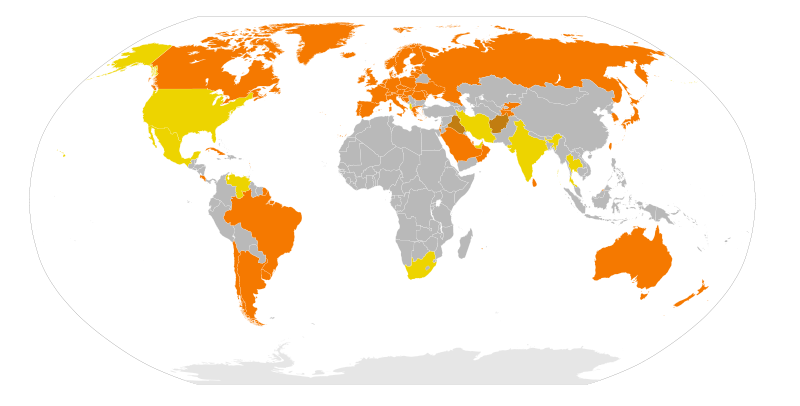What Happened to Healthcare Reform?
“I see no reason why the United States of America, the wealthiest country in the history of the world, spending 14 percent of its gross national product on health care, cannot provide basic health insurance to everybody. A single-payer health care plan, a universal health care plan. That's what I'd like to see.”

Barack Obama. Back in 2003.
So what happened?
Is single-payer too expensive or unworkable?
No. It has been proven to be more efficient and equitable, and many other countries have had it for decades, like the UK, Canada, and Taiwan. Switching to a single-payer system would save $200-$400 billion a year—not only would we save lives, we would even have money left over.
Now though, we have the reverse.
Every year in the United States, 45,000 people die because they don’t have health insurance.
This is very serious. I want to repeat this because it makes clear the gravity of this situation and the priorities of this system and those who lead it.
45,000 people, dead, every year.
I am not downplaying in any sense the deaths of those who died on 9/11, but I want to make this very clear. Millions of people felt attacked on 9/11 and mourned the 3,000 who died. In that same year, somewhere around 45,000 people were killed in the US by politicians and executives who prefer profit and power to people’s lives. Since 9/11, over 500,000 people have died because these profiteers refuse to cover them.
We should all feel attacked.
This is what class war looks like.
One must also never forget the millions of people killed across the globe by US politicians from both parties, through war and too many disgusting policies to list here.
One might say that this is unrelated to the discussion at hand. I wholeheartedly disagree. US leaders justify wars as necessary for our safety—clearly healthcare is what is actually needed for our safety. If these politicians gave a damn about regular Americans, they would pass universal healthcare, not create wars.
So why didn’t the Democrats or Republicans, who both justify their bipartisan wars as “for our safety,” pass universal healthcare?
Was it that the majority of Americans were against it?
No again. Polls from 1988 to 2009 show a consistent majority of Americans support single-payer healthcare. In 2009, 72 percent supported single-payer.
That year the Democrats controlled the Senate, the House, and the Presidency.
To understand what happened means to confront the limits of democracy under capitalism, and particularly the extremely limited democracy of the US two-party system.
The health insurance industry is a behemoth. In 2011, its executives’ median pay was the highest of any industry in the country—more than oil, finance, telecom, consumer goods, etc. For the past three years (the depths of the Great Recession) health insurance companies have made record profits. Not just profits, record profits.
In a capitalist democracy, all this translates into extreme political power. In 2008 it was clear to the insurance industry that the Democrats were going to win and control Washington for the next four years, probably more.
So they paid Obama more than they’ve paid any candidate ever before. And they paid the Democrats almost $90 million in total.
The industry also paid around $76 million to the Republicans in the same year, financing a two-pronged attack.
Influence over both parties through money and lobbyists (often ex-party politicians) bought them the Democrats’ ears, to write the bill, and the Republicans’ ears, to openly attack it.
This ambush bought them their bill: Obamacare. It isn’t everything they wanted, but it’s sure as hell as much as they could get, i.e. as little as possible for us.
Obama retreated from universal single-payer before even running for president. The Democrats squelched single-payer advocates and even derailed a bill that did propose single-payer healthcare by expanding Medicare for all.
Instead, Obamacare is modeled on Romney’s Massachusetts law, which was first dreamed up by the conservative think tank The Heritage Foundation.
There is no public option.
Unnecessary overhead (including exorbitant executive paychecks) can still cost us 20 percent or more of every dollar we pay—compare this to Medicare, where it’s only 2-4 percent.
26 million people remain uninsured.
And the other 30 million are not getting affordable, guaranteed, universal healthcare. They’re forced to become new customers for the industry to make billions off of.
And tens of thousands will still be killed by the industry’s drive for profit, because make no mistake, we could easily have universal healthcare. It’s cheaper, it’s better, dozens of other countries have it, and the majority of Americans want it.
But the US political system is neither rational nor democratic.
We will need to fight one of the world’s most profitable industries and its cronies in the Democratic and Republican parties to be able to carry out rationality and democracy, to save resources, and to save lives.
